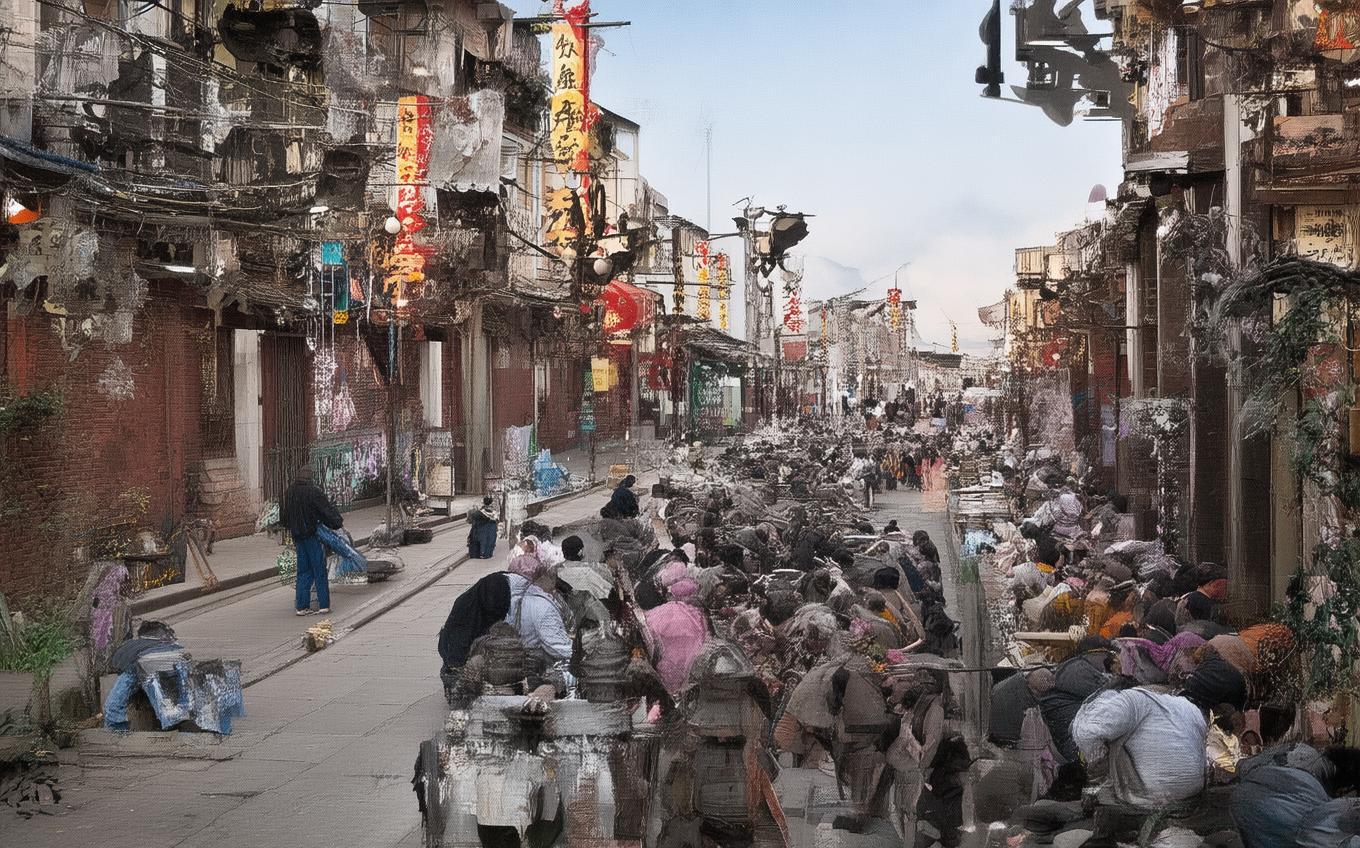Analysis of "题临安邸" - Classical Chinese Poetry
Introduction
"题临安邸" (Tí Lín'ān Dǐ) is a famous poem written by Lin Sheng, a poet from the Southern Song Dynasty (1127–1279). This poem was composed during a turbulent period in Chinese history when the Song Dynasty had lost its northern territories to the Jurchen-led Jin Dynasty and relocated its capital to Lin'an (modern-day Hangzhou).
The poem is a sharp critique of the Southern Song court's complacency and indulgence in luxury while ignoring the urgent need to reclaim lost lands. It remains significant in Chinese literature as a powerful political satire and a reflection of patriotic sentiment during times of national crisis.
The Poem: Full Text and Translation
山外青山楼外楼
Shān wài qīngshān lóu wài lóu
Beyond the mountains, more mountains; beyond the towers, more towers.
西湖歌舞几时休
Xīhú gēwǔ jǐshí xiū
When will the singing and dancing by West Lake ever cease?
暖风熏得游人醉
Nuǎn fēng xūn dé yóurén zuì
The warm breeze intoxicates the revelers,
直把杭州作汴州
Zhí bǎ Hángzhōu zuò Biànzhōu
Mistaking Hangzhou for the lost capital, Bianzhou.
Line-by-Line Analysis
-
"山外青山楼外楼"
- The repetition of "mountains beyond mountains" and "towers beyond towers" creates a sense of endlessness, symbolizing the extravagance and sprawling luxury of Lin'an. The imagery suggests that the ruling class is preoccupied with building grand structures rather than addressing national crises. -
"西湖歌舞几时休"
- The rhetorical question "When will the singing and dancing ever cease?" expresses frustration. West Lake was a scenic spot where officials and nobles indulged in entertainment, ignoring the suffering of the people and the humiliation of the lost northern territories. -
"暖风熏得游人醉"
- The "warm breeze" is metaphorical—it represents the decadent atmosphere that lulls the elite into a false sense of security. The word "intoxicated" (zuì) implies they are blinded by pleasure. -
"直把杭州作汴州"
- The final line delivers the poem's biting critique: the rulers act as if Hangzhou (the temporary capital) is Bianzhou (Kaifeng, the original capital before the Jin invasion). This highlights their delusion and refusal to confront reality.
Themes and Symbolism
1. Political Satire and Patriotism
The poem condemns the Southern Song court's negligence. Instead of preparing to reclaim the north, the elite indulged in hedonism, treating the temporary capital as a permanent paradise.
2. Contrast Between Reality and Delusion
- Mountains and Towers → Symbolize excess and escapism.
- West Lake’s Singing and Dancing → Represents the distraction of entertainment.
- Hangzhou vs. Bianzhou → Shows the denial of national tragedy.
3. The Danger of Complacency
The "intoxicated" revelers are a warning: when leaders ignore duty for pleasure, the nation suffers.
Cultural Context
Historical Background
After the Jin Dynasty captured northern China in 1127, the Song court fled south and established Lin'an as the new capital. Many officials, however, grew comfortable and abandoned efforts to recover lost lands.
Confucian Values
The poem reflects Confucian ideals of responsibility and righteous governance. A ruler’s duty is to protect the people, not indulge in luxury. Lin Sheng’s critique aligns with the tradition of scholar-officials who spoke out against corruption.
Legacy in Chinese Literature
"题临安邸" is often cited as an example of yōuguó shī (忧国诗, "poems of concern for the nation"). Its themes resonate in later works criticizing political negligence.
Conclusion
"题临安邸" is a masterpiece of political poetry, blending sharp criticism with vivid imagery. Lin Sheng’s frustration with the Southern Song elite’s decadence remains relevant today—a reminder of the consequences when leaders prioritize comfort over duty.
The poem’s enduring appeal lies in its universal message: prosperity should not breed forgetfulness, and a nation’s strength depends on vigilance and moral courage. For modern readers, it offers a poignant reflection on power, responsibility, and the dangers of complacency.
"Beyond the mountains, more mountains—but will we ever wake from the dream?"




Comments (0)
No comments yet. Be the first to comment!